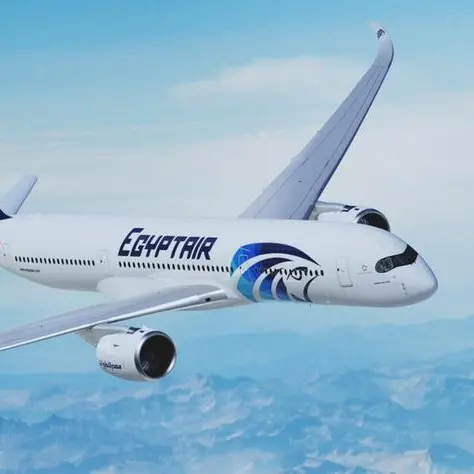06 February 2016
Doha - Qatar is turning to international debt markets to shore up its finances pressured by low energy prices. The country is in talks with banks about a sovereign sukuk issue.
Through bond sales in international and loan markets, Qatar could cover its likely QR46.5bn ($12.8bn) deficit for the current fiscal.
Talks are underway with a small group of banks to select arrangers for the first of these deals, Global Research noted in its latest "GCC market performance" report.
"As oil prices are not expected to recover soon, we believe GCC markets may face near- term challenges. All GCC nations are expecting a deficit in their 2016 budget due to a continued fall in oil prices. Saudi Arabia and Qatar have already projected $87bn and $12bn deficits, respectively in their budgets for 2016.
Furthermore, Kuwait is estimating a deficit of KWD12.9bn ($42.6bn) in its 2016/17 budget. We believe other GCC peers would follow suit. In the UAE, Dubai announced a zero- deficit budget this year; however, the other emirates may record budget shortfalls", the analysts said.
To reduce deficits, GCC nations have plans to raise taxes, sell bonds, and eliminate subsidies.
Furthermore, their focus would remain on strengthening non-oil revenue by developing small and medium-sized enterprises. GCC governments have already begun to develop their non-oil sector to strengthen their economies. Hence, in the long run, GCC markets would be an attractive investment avenue.
The market performance report noted Qatari bourse fell 9.1 percent month-on-month in January due to the oil rout. The index reached a two -year low during the month as oil prices plunged after the lifting of sanctions on Iran.
The market has been recording weakness over the past several months due soft oil prices. During the middle of the month, the index crashed due to a sharp decline in crude prices. However, owing to mixed earnings performances, market sentiment recovered partially.
The value of shares traded declined 20.9 percent month-on-month to $1.2bn, while volume traded fell 7.2 percent. Market capitalisation of companies listed on QE declined 8.3 percent to $118bn in January from $128bn. Market capitalization of the top 10 listed companies dropped 7.3 percent.
In terms of valuation, the one-year forward PE ratio of GCC markets stands at 7.1x-10.3x, lower than that of emerging market peers.
Thus, GCC markets are still attractive vis-à-vis peers. Qatar and the UAE are part of the MSCI Emerging Markets Index. Saudi Arabia is likely to be added to the index in 2017. The FTSE has upgraded Qatar to Secondary Emerging Market from Frontier Market in September 2015 -this would be positive for Qatar in the long run.
The report noted the GCC markets may face near-term challenges due to fall in oil prices. In 2015, the performance of GCC markets was weak due to a significant fall in oil prices.
In January, the market trend continued due to concerns about oversupply of oil as sanctions on Iran were lifted. The markets plummeted mid-month due to fall in oil prices. News that Russia plans to cooperate with Opec partly allayed investor concerns.
Doha - Qatar is turning to international debt markets to shore up its finances pressured by low energy prices. The country is in talks with banks about a sovereign sukuk issue.
Through bond sales in international and loan markets, Qatar could cover its likely QR46.5bn ($12.8bn) deficit for the current fiscal.
Talks are underway with a small group of banks to select arrangers for the first of these deals, Global Research noted in its latest "GCC market performance" report.
"As oil prices are not expected to recover soon, we believe GCC markets may face near- term challenges. All GCC nations are expecting a deficit in their 2016 budget due to a continued fall in oil prices. Saudi Arabia and Qatar have already projected $87bn and $12bn deficits, respectively in their budgets for 2016.
Furthermore, Kuwait is estimating a deficit of KWD12.9bn ($42.6bn) in its 2016/17 budget. We believe other GCC peers would follow suit. In the UAE, Dubai announced a zero- deficit budget this year; however, the other emirates may record budget shortfalls", the analysts said.
To reduce deficits, GCC nations have plans to raise taxes, sell bonds, and eliminate subsidies.
Furthermore, their focus would remain on strengthening non-oil revenue by developing small and medium-sized enterprises. GCC governments have already begun to develop their non-oil sector to strengthen their economies. Hence, in the long run, GCC markets would be an attractive investment avenue.
The market performance report noted Qatari bourse fell 9.1 percent month-on-month in January due to the oil rout. The index reached a two -year low during the month as oil prices plunged after the lifting of sanctions on Iran.
The market has been recording weakness over the past several months due soft oil prices. During the middle of the month, the index crashed due to a sharp decline in crude prices. However, owing to mixed earnings performances, market sentiment recovered partially.
The value of shares traded declined 20.9 percent month-on-month to $1.2bn, while volume traded fell 7.2 percent. Market capitalisation of companies listed on QE declined 8.3 percent to $118bn in January from $128bn. Market capitalization of the top 10 listed companies dropped 7.3 percent.
In terms of valuation, the one-year forward PE ratio of GCC markets stands at 7.1x-10.3x, lower than that of emerging market peers.
Thus, GCC markets are still attractive vis-à-vis peers. Qatar and the UAE are part of the MSCI Emerging Markets Index. Saudi Arabia is likely to be added to the index in 2017. The FTSE has upgraded Qatar to Secondary Emerging Market from Frontier Market in September 2015 -this would be positive for Qatar in the long run.
The report noted the GCC markets may face near-term challenges due to fall in oil prices. In 2015, the performance of GCC markets was weak due to a significant fall in oil prices.
In January, the market trend continued due to concerns about oversupply of oil as sanctions on Iran were lifted. The markets plummeted mid-month due to fall in oil prices. News that Russia plans to cooperate with Opec partly allayed investor concerns.
© The Peninsula 2016




















